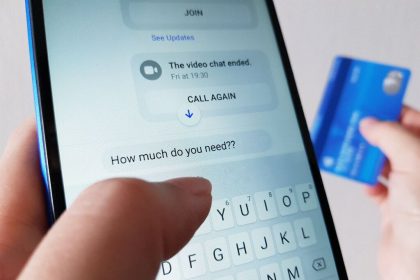“Hi, Mary,” That’s how a scammer’s conversation usually begins. It ends with me abruptly hanging up. Greeting me with a “Hi Mary,” like we are buds, is the first clue that the call is from a scam artist. Since this is open enrollment season for Medicare (Oct. 15—Dec. 7), it’s an excellent time to remind us that there are scammers poised to steal our money by posing as government officials. These hustlers prey upon senior citizens because they assume we are illiterate regarding technology. Hanging up on an unknown caller isn’t rude; it’s one way of protecting yourself from people trained to gain your trust — and your money. A recent AARP report estimated that “$28.3 billion is lost to elder fraud scams yearly.” And government imposter scams cost seniors about “$122 million in 2021, according to the Federal Trade Commission. Even more hurtful, AARP’s study found that 72% — or more than $20 billion — is taken by individuals known to the victims, like family members, friends, or advisers. It is disheartening that we have to watch our backs in public and around those who have access to our personal information. The entire city was stunned when Patricia Martin, a prominent Cook County judge, was accused of bilking 96-year-old Tuskegee Airman Oscar Wilkerson Jr. out of nearly $400,000 from his savings and retirement accounts. Callers who pose as representatives from the IRS, the Social Security Administration or Medicare, or even law enforcement also are a growing concern. Even if the caller represents a legitimate business, repeated unwanted phone calls are an annoyance seniors shouldn’t have to deal with. I’m pretty tolerant of people who work in call centers. After all, they must earn a living like the rest of us. But scam callers can be relentless. One day, I got nearly a dozen robocalls about extended car warranties. I would hang up, and several minutes later, the phone would ring again and again. And yes, I was on the National Do Not Call Registry, but that didn’t stop all unwanted calls. There are, however, concrete steps seniors can take to protect themselves from crooks who are trained in the art of deception. The Federal Trade Commission’s website offers the following tips on how to detect a scam: If the caller says you were selected for an offer, won a prize or the Lottery, but you have to pay something to collect the award, that’s a scam.If you are asked to pay by wiring money, putting money on a gift card, prepaid card or cash reload card, or using a money transfer app. — it’s a scam. And it is never a good idea to give out your social security number to someone who calls you unexpectedly. Other common phone scams include travel and timeshare scams that ask you to pay them first, overpriced or worthless extended car warranty policies and computer fixes that are really ways to steal your personal information. Older adult victims also are losing the most money because of an increase in cryptocurrency-related investment schemes, according to a recent report on CBS Evening News. One reason grifters are so successful stealing from seniors is that too many victims are ashamed to let anyone know they fell for a fraud. But that appears to be changing. According to the FTC’s Consumer Sentinel Network, “people 60+ spotted fraud and reported it before losing any money at nearly twice the rate of people between 20 and 59.” We can do our part to help reverse this appalling trend by helping seniors in our lives be aware of the dangers lurking behind a cheerful stranger’s “Hi!” For more information, go to: https://consumer.ftc.gov/articles/phone-scams



